
What was the Second World War about? According to Allied leaders, that wasn't a hard question. “This is a fight between a free world and a slave world,” U.S. Vice President Henry Wallace explained. It is between Nazidom and democracy, Winston Churchill said, with tyranny on one side and “liberal, peaceful powers on the other.
Would that it were so simple. The Allies inclusion of the Soviet Union—a dictatorship as absolute as any dictatorship in the world, Franklin D. Roosevelt once called it-muddied the waters. But the other chief Allies weren't exactly liberal democracies, either. Britain, France, the Netherlands, Belgium, the United States, and (depending on how you view Tibet and Mongolia) China were all empires. Together, they held, by my count, more than 600 million people—more than a quarter of the world—in colonial bondage.
This fact wasn't incidental; empire was central to the causes and course of the war. Yet the colonial dimensions of World War II aren't usually stressed. The most popular books and films present it as Churchill did, as a dramatic confrontation between liberty-loving nations and merciless tyrants. In the United States, it's remembered still as the “good war, the vanquishing of evil by the Greatest Generation.
That understanding works—sort of—when war stories focus on Adolf Hitler's invasions of sovereign states in Europe. It falters, however, when they center on the Pacific. There, the Japanese targeted colonies, seizing them under the banner of Asia for the Asiatics. The Allies beat Japan back, but only to return Burma to the British and Indonesia to the Dutch-Asia for the Europeans.
This story is from the {{IssueName}} edition of {{MagazineName}}.
Start your 7-day Magzter GOLD free trial to access thousands of curated premium stories, and 9,000+ magazines and newspapers.
Already a subscriber ? Sign In
This story is from the {{IssueName}} edition of {{MagazineName}}.
Start your 7-day Magzter GOLD free trial to access thousands of curated premium stories, and 9,000+ magazines and newspapers.
Already a subscriber? Sign In
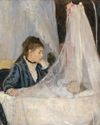
The Dark Origins of Impressionism
How the violence and deprivation of war inspired light-filled masterpieces
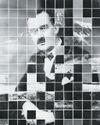
The Magic Mountain Saved My Life
When I was young and adrift, Thomas Manns novel gave me a sense of purpose. Today, its vision is startlingly relevant.

The Weirdest Hit in History
How Handel's Messiah became Western music's first classic

Culture Critics
Nick Cave Wants to Be Good \"I was just a nasty little guy.\"
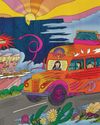
ONE FOR THE ROAD
What I ate growing up with the Grateful Dead

Teaching Lucy
She was a superstar of American education. Then she was blamed for the country's literacy crisis. Can Lucy Calkins reclaim her good name?
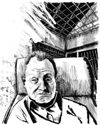
A BOXER ON DEATH ROW
Iwao Hakamada spent an unprecedented five decades awaiting execution. Each day he woke up unsure whether it would be his last.
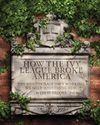
HOW THE IVY LEAGUE BROKE AMERICA
THE MERITOCRACY ISN'T WORKING. WE NEED SOMETHING NEW.

Against Type
How Jimmy O Yang became a main character

DISPATCHES
HOW TO BUILD A PALESTINIAN STATE There's still a way.